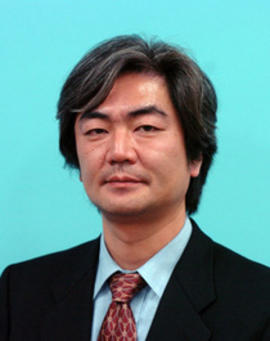I Want to Learn How to Think Beyond Academic Disciplines
Vol.1 2010.03.01 KUNIYOSHI Yasuo
Relation between the Robot's Corporeality and Cognition/Behavior
It has been clear that for intelligence acting in the real world, the effect of its corporeality is just as important as processing information.
This lecture first explicates what important roles are played by the physical and geometrical natures of the body, illustrating with specific examples such as dynamic movements of the whole body as well as active visual functions.
It then points out that corporeality is the source of information when we think about the emergence and development of behaviors and cognition, and provides principles for drawing various possibilities from the body.
Lastly, the lecture explains a view that "the body makes the brain," introducing researches into models for simulating the development of a fetus and/or a newborn child based on lobotics method. This new paradigm not only sheds a new light on inquiries into principles of human intelligence, but it also connects to a new methodology toward creating a robot intelligence that is flexible and adaptable and totally different from the previous fixed program.
- Instructor
-

- KUNIYOSHI Yasuo
- Professor at the Graduate School of Information Science and Technology/Faculty of Engineering, Areas of Specialty: Robot Studies, Intelligence System Information Science. He finished the Graduate School of Engineering at Tokyo University in 1991 (Ph.D. in Engineering). That same year, he became a Research Scientist at Electrotechnical Laboratory, AIST, MITI. He served as a Senior Research Scientist in 1995. From 1996 to 1997 he was a Visiting Scholar at MIT AI Lab. In 2001 he became an Associate Professor at Tokyo University. Since 2005, he has served as a Professor at Tokyo University. He conducts researches on the creation and development of cognition based on corporeality, sciences of imitation, humanoid robot, etc. His publications, including research articles, number roughly 450, and he has written and edited 19 volumes in total. Previous awards include Incentive Award and Outstanding Paper Award from the Robotic Society of Japan, Sato Memorial Intelligent Robot Research Incentive Award,IJCAI Outstanding Paper Award,Gold Medal from "Tokyo Techno Forum 21." He is a member of Science Council of Japan, Robot Societies of Japan, the Japanese Society for Artificial Intelligence, Information Processing Socierty of Japan, IEEE, Japanese Society of Baby Science and other associations.
- Other Lessons